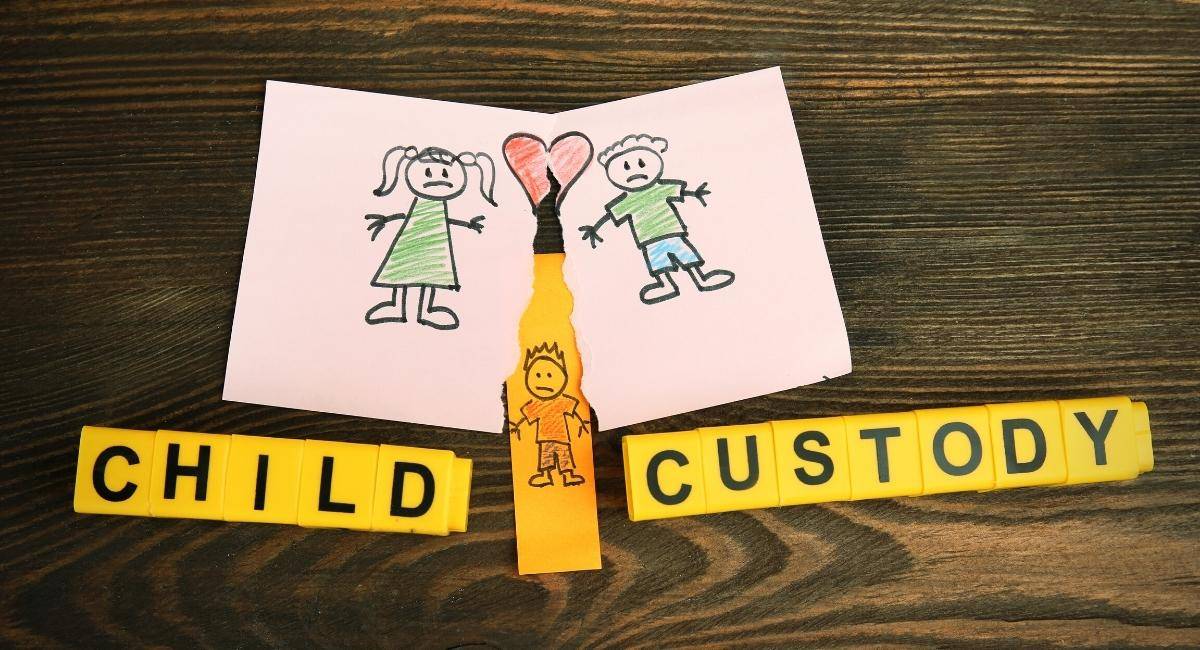Child custody is always an emotionally-charged dispute between parents when there is a divorce, and parents who fail to comply with court orders can face criminal charges in Texas. Anybody accused of interference with child custody offense in Collin County will want to be sure to seek the help of an interference with child custody attorney.
Interference with child custody can be a felony offense, which means alleged offenders can face significant periods of incarceration as well as heavy fines. The good news is that state law recognizes certain affirmative defenses that can allow alleged offenders to possibly justify their actions and get the criminal charges reduced or dismissed.
Interference With Child Custody Lawyer Defense Lawyer in Plano, Allen, Frisco, and McKinney, TX
If you are accused of interference with child custody contact the Law Offices of Richard C. McConathy today at (469) 304-3422 for a consultation about your alleged offense in Plano, Allen, Frisco, McKinney, TX, and surrounding areas of Collin County, Texas. A criminal defense attorney will make a world of difference in helping you achieve the most favorable possible outcome for your case.
The Law Offices of Richard C. McConathy regularly handles all kinds of domestic violence and family violence charges, so we know how to help people overcome even the most daunting of accusations. Contact us online for a consultation so we can really dig into the details of your case and explain what you might be able to do inside a courtroom.
Texas Interference With Child Custody Charges
Interference with child custody is considered one of the offenses against the family in Texas. Texas Penal Code § 25.03(a) establishes that a person commits an interference with child custody offense if they take or retain a child younger than 18 years of age:
- when they know that their taking or retention is a violation of the express terms of a judgment or court order, including a temporary order, of a court, disposing of the child’s custody;
- when they have not been awarded custody of a child by a court of competent jurisdiction, know that a suit for divorce or a civil suit or application for habeas corpus to dispose of a child’s custody has been filed, and take a child out of the geographic area of the counties composing the judicial district when the court is a district court or the county when the court is a statutory county court, without the permission of the court and with the intent to deprive the court of authority over a child; or
- outside of the United States with the intent to deprive a person entitled to possession of or access to a child of that possession or access and without the permission of that person.
Under Texas Penal Code § 25.03(b), a noncustodial parent commits an interference with child custody offense if, with an intent to interfere with the lawful custody of a child younger than 18 years of age, they knowingly entice or persuade the child to leave the custody of their custodial parent, guardian, or person standing in the stead of the custodial parent or guardian of the child.
Texas Penal Code § 25.03(c) states that it is a defense to prosecution under Texas Penal Code § 25.03(a)(2) that the alleged offender returned the child to the geographic area of the counties composing the judicial district if the court is a district court or the county if the court is a statutory county court, within three days of the date of the commission of an offense.
Texas Penal Code § 25.03(c-1) further provides it is an affirmative defense to prosecution under Texas Penal Code § 25.03(a)(3) that the taking or retention of a child was pursuant to a valid order providing for possession of or access to a child, or notwithstanding any violation of a valid order providing for possession of or access to a child, the alleged offender’s retention of a child was due only to circumstances beyond their control, and they promptly provided notice or made reasonable attempts to provide notice of those circumstances to the other person entitled to possession of or access to the child.
Texas Penal Code § 25.03(a)(3) will not apply if, at the time of an alleged offense, the alleged offender taking or retaining the child was entitled to possession of or access to the child and was fleeing the commission or attempted commission of family violence against the child or the person.

Interference With Child Custody Penalties in Collin County
Interference with child custody is generally a state jail felony that is punishable by up to two years in state jail and/or a fine of up to $10,000. People again need to remember that affirmative defenses exist that can defeat or mitigate the legal consequences of allegedly unlawful conduct.
Some police departments may view interference with child custody as being a civil matter and could then be reluctant to make arrests and file cases involving feuding parents. Such matters will instead be handled by family courts where child custody orders are in place.
Both parties are expected to comply with original court orders for child custody. If one party clearly disobeys or violates an order, the other party can usually pursue some manner of legal enforcement of the order.
A judge usually reviews the evidence presented against an alleged offender and determines whether the alleged offender should be held in contempt of court. Depending on the severity of an alleged offense, an alleged offender could face additional punishments or a possible reduction in their parental rights.
The alleged offender would be expected to comply with the original child custody order moving forward. Enforcement of that order may also involve new guidelines designed to ensure that the alleged offender does not continue to violate the order.
Texas Family Code § 42.002 establishes liability for interference with possessory right, under which a person who takes or retains possession of a child or conceals the whereabouts of a child in violation of a possessory right of another person can be liable for damages to that person. The law states that a possessory right is violated by the taking, retention, or concealment of a child at a time when another person is entitled to possession of or access to the child.
Collin County Interference With Child Custody Resources
Schier v. State, No. 14-00-00841-CR (Tex. App. 2001) — Carl Schier challenged his conviction for interference with child custody, alleging improper exclusion of evidence relevant to his necessity defense and insufficiency of the evidence to prove proper venue in Brazos County, Texas. The 14th District Court of Appeals of Texas in Houston ruled that the harmful events about which Schier testified could not be made imminent through his failure to take legally appropriate action sooner rather than later and found no abuse of discretion in the trial court’s exclusion of this testimony as the trial court could have properly concluded it was irrelevant to his necessity defense. The Court of Appeals also stated that it found sufficient evidence that Schier committed at least part of the offense of interference with child custody in Brazos County by retaining the child in Brazos County in violation of the express terms of the August 1997 order disposing of the child’s custody. Both points of error were overruled, and the Court of Appeals affirmed the judgment of the trial court.
Garcia v. State, No. 08-03-00382-CR (Tex. App. 2005) — Martha Garcia was accused of failure to allow her ex-husband, Albert Flores, visitation rights for the couple’s daughter, although the divorce decree named Garcia as the managing conservator of the child and Flores as possessory conservator. Garcia filed a motion to quash an indictment, alleging that as she had legal custody of the couple’s daughter, it was legally impossible for her to commit the offense of interference with child custody, and the court considered this motion to quash the indictment but denied her motion. Garcia conceded that she had no evidence to indicate an improper motive on the part of the state regarding the prosecution, and the Court of Appeals of Texas in El Paso ultimately affirmed the judgment of the trial court.
Silcott v. Oglesby, 721 S.W.2d 290 (Tex. 1987) — Ronan Silcott sued his son’s maternal grandfather, Bobby Oglesby, alleging that Oglesby kidnapped his child, a jury found monetary damages for Silcott, and the trial court rendered judgment on the verdict. The court of appeals reversed that judgment, holding that a parent does not have a common law cause of action if someone abducts their child in violation of a custody order. The Supreme Court of Texas reversed the court of appeals judgment and remanded the case to that court for a determination of Oglesby’s factual sufficiency point.
Find A Collin County Attorney for Interference With Child Custody Charges | Law Offices of Richard C. McConathy
Were you arrested for alleged interference with child custody in Collin County? The Law Offices of Richard C. McConathy encourage people in these cases to avoid making any statements to authorities until they have legal representation.
Call (469) 304-3422 or contact the Law Offices of Richard C. McConathy today at for a consultation about your alleged offense in Plano, Allen, Frisco, McKinney, TX, and surrounding areas of Collin County, Texas. We can then better understand the nature of your charges and also examine your possible defense options.


